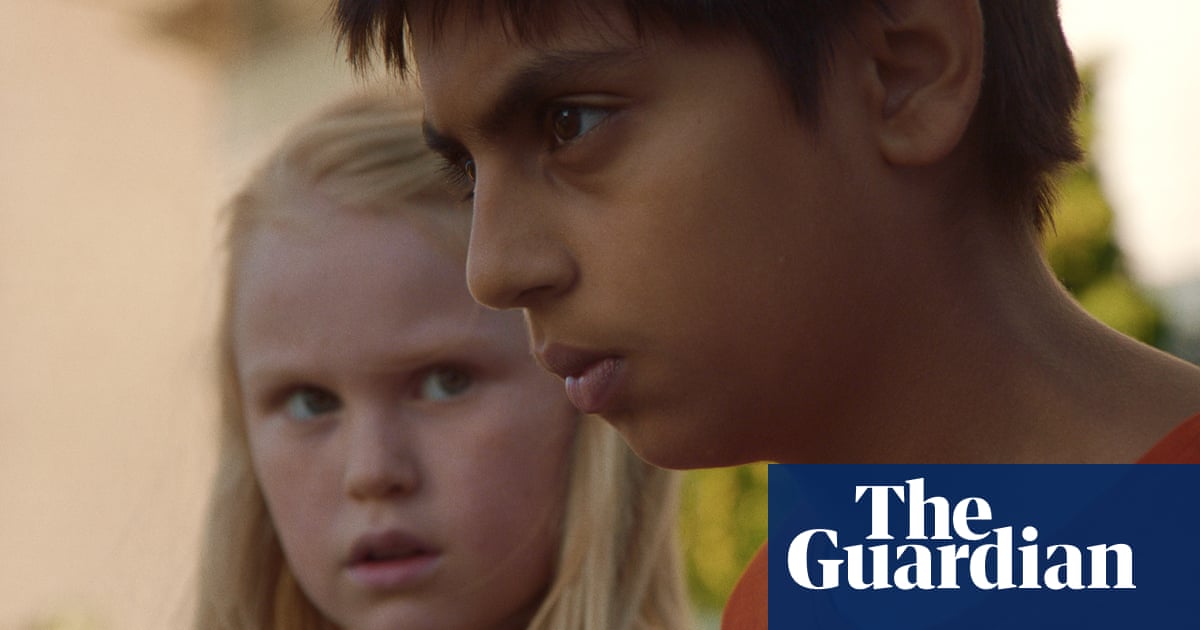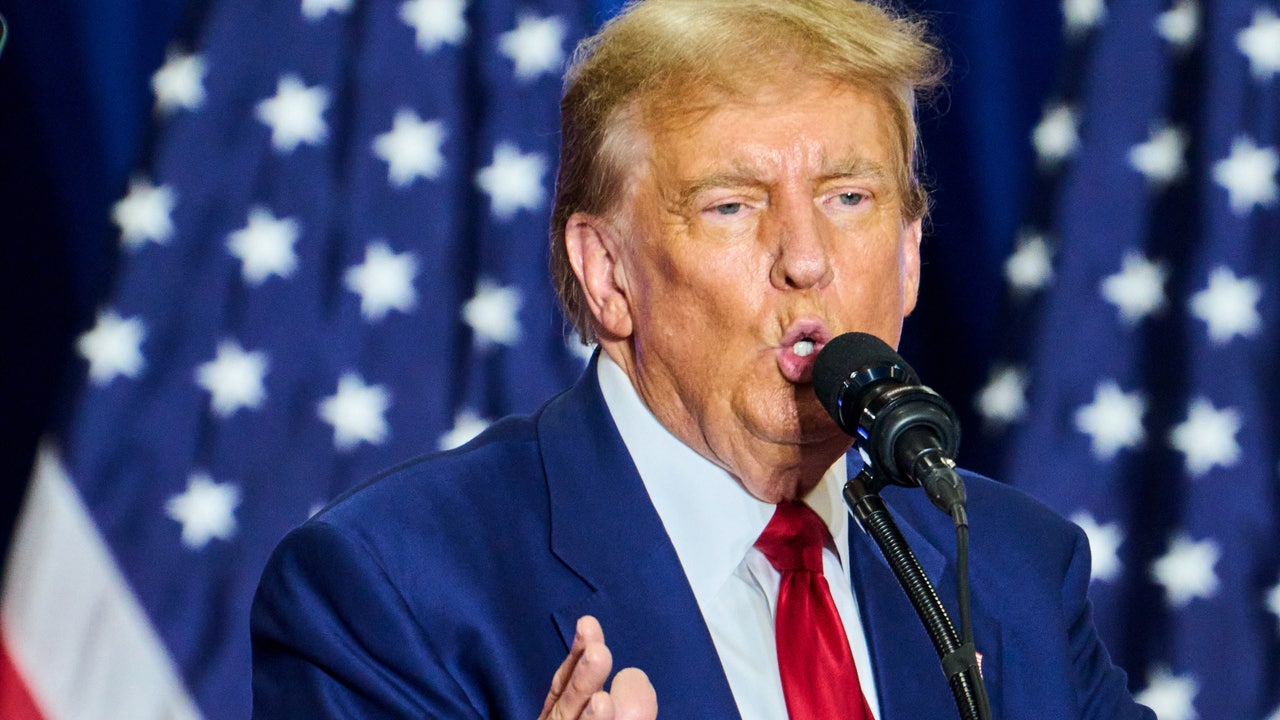
When people see The Innocents, they tend not to hold back on telling its director what they think. “This is the worst thing I’ve ever been through,” is a frequent reaction. Followed by: “Thank you.”
“You can see they’ve been crying,” says Eskil Vogt. They are frequently shaking, he reports. He shakes his head, smiling, a little bemused. “OK. How do I process that? Weird.”
The Innocents is a candidate for the most disturbing film of the year. A horror-ish arthouse drama about four children who discover they have magical powers, it has been compared to Let the Right One In, Carrie and The Shining. The idea came to Vogt when his children, now 11 and nine, were little. Standing at the school gates watching them play, he noticed they behaved differently with their friends.
“I wanted to make something about that secret world of childhood,” he says over a video call from his home in Oslo. He looks the part of intense European auteur: straight back, shaved head, laser-focus blue eyes. But he is also relaxed company: friendly, with a dry sense of humour. Writing the script, he imagined what would happen if the magic of child’s play became a reality – if kids developed superpowers overnight. Spoiler: it doesn’t end well.

The Innocents begins when nine-year-old Ida (Rakel Lenora Fløttum) moves into an Oslo apartment complex with her parents and her sister, Anna (Alva Brynsmo Ramstad), who is 11 and is on the autism spectrum. In an early scene, we watch Ida slyly pinch Anna hard on the leg while their mother isn’t looking. What is so shocking is the expression on Ida’s face: not spiteful or mean, merely curious about the pain she is inflicting.
Ida makes two friends on the estate, soulful little Aisha (Mina Yasmin Bremseth Asheim) and a bullied boy called Ben (Sam Ashraf). Things turn dark when these two develop psychic abilities: Aisha can listen to other people’s thoughts and Ben can control objects with his mind. That is dark in the conceptual sense, though: daylight is almost perpetual in the Norwegian summer: “In Oslo, the sun doesn’t set until 10pm and it only stays down for a few hours. So we didn’t have the fear of the dark to play with, which is a really big deal in horror movies. It’s such a primal thing.”
Vogt hadn’t bargained for the level of audience discomfort. There is something about his film that people can’t take. “This is a weird thing. I didn’t think the film would be that impactful,” he says. “I mean, most horror movies show much worse things.”
The moment that broke me came when Ida does something unspeakably cruel to her sister (who is nonverbal and can’t communicate that she is in pain). There is no gore, just a patch of blood that spreads slowly into a red map across a white sock. Watching on my TV at home in the middle of the day, I had to hit the pause button and walk into the kitchen for a breather. Vogt grins, nodding. He has heard it all before.
He wonders if it is the realism that makes The Innocents so triggering. “Violence in movies tends to go overboard. If I watch someone getting shot, head exploding, I don’t feel anything. But if I see a hammer hitting a fingernail, I feel it in my whole body.
“I wanted things on a relatable level. I think that’s why some people have fainted at the splinter in the leg, which is a very small thing.” Not quite: it is a chunk of wood the size of a KitKat finger lodged in a child’s soft thigh.
Vogt is interested in children behaving with a cruelty that would be considered evil in adults. There is a phrase in Norwegian, he says: children are pure angels. “But thinking about your own childhood, or watching your kids, you realise the reality is that of course they’re not angels. I mean, you’re not born with empathy. You’re born an egotistical, narcissistic sociopath. But, luckily, you don’t have the tools to impose your will on the world.”
If I watch someone getting shot, I don’t feel anything. But if I see a hammer hitting a fingernail …
Audience members who meet Vogt at screenings have been regaling him with anecdotes of childhood. The one that sticks in his mind came from an American reporter, who once caught a group of children walking with a baby towards the edge of a cliff. One of the kids cheerfully explained that they were going to throw the baby off the cliff. “They had some idea, a stupid idea, it would bounce up again.” Vogt grins, eyebrows wrinkling into a wordless what-if. “I don’t know if they would actually have done it.”
What I like about The Innocents is that its chief child antagonist, Ben, does some terrible things and yet Vogt generates sympathy for him. “I feel it’s very important to remember that kids are kids.” In Norway, a child of Ben’s age, 10 or so, could not be put on trial: the age of criminal responsibility is 15 (as opposed to 10 in England, Wales and Northern Ireland and 12 in Scotland). That is only fair, says Vogt. “Kids can do stupid stuff. They don’t think about consequences. They have impulses; they can’t control emotions.”
The Innocents is Vogt’s second film as a director. He is best known as the scriptwriting partner of the director Joachim Trier. They met as teenagers in Oslo and instantly became best friends. They have written five feature films together, most recently The Worst Person in the World, the Oscar-nominated arthouse romcom about a directionless woman in her 20s.
When I ask how two middle-aged men wrote such a sublime script about a young woman, he smiles. If the question annoys him, he doesn’t let it show. “We get asked that a lot. I think the best answer is that we don’t think about it that way.” Instead, they focus on making complicated characters with contradictions and idiosyncrasies, he says. In fact, middle age is a good place to be as a writer: “Because you still remember what it is to feel young, but you also know that time is limited; you can see the end coming. And it would be boring if writing about middle-aged men was the only thing I could do.”
Inevitably, the phone has already started ringing with interest from Hollywood in remaking The Innocents. Vogt is anxious about what might get lost in translation. “I’d be afraid they would make it like a normal movie. Some things would be too dark, or they’d try to make the kids a little bit older and suddenly it’s about puberty or coming of age.”
Still, he wouldn’t say no. “I made my movie exactly the way I wanted to make it, with total freedom. So if some people want to pay a lot of money to do a remake, that’s just free money for me.”









































































